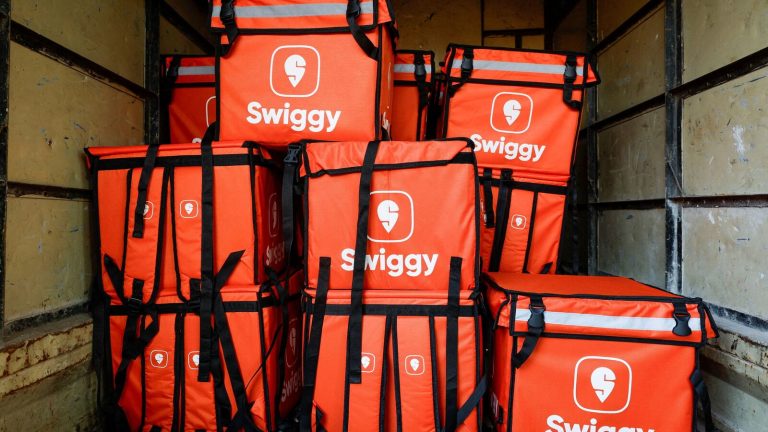Food delivery major Swiggy said on Friday its quick commerce business Instamart is expected to reduce its losses going forward after the company’s consolidated fourth quarter net losses nearly doubled to ₹1,081.18 crore from ₹554.7 crore a year earlier. Meanwhile, revenues increased to ₹4,530.7 crore from ₹3,143.2 crore the year-ago quarter.
“We believe that Instamart reached the peak of adjusted ebitda (earnings before interest, tax, depreciation and amortization) losses in late-Q4 and from here on, we expect to progressively unwind losses, the pace of which will be determined by our expansion of AOV and take-rates, and the nature and quantum of competitive intensity,” Swiggy’s co-founder and group CEO Sriharsha Majety said in the shareholder letter. AOV refers to average order value.
Broadly, Majety highlighted that the quick commerce sector is in the midst of a rapid expansion phase led by growing consumer aspirations and high competitive intensity. In the fourth quarter, Instamart added new cities to its network and ramped up its dark store count to 316 stores.
He further clarified that the company has a tight hold on overall fixed costs and expects the trajectory to continue, although there might be quarters where there could be cycles of ups and downs with a certain amount of investment that go towards enabling growth of its other vertices.
Also read: ₹1,081 crore, revenue jumps 45% YoY”>Swiggy Q4 Results: Net loss nearly doubles to ₹1,081 crore, revenue jumps 45% YoY
For the full fiscal year FY25, Swiggy’s revenues grew to ₹15,623 crore compared to ₹11,634 crore a year earlier. Its losses also widened to ₹3,116.8 crore from ₹2,350.2 crore in FY24.
In comparison, Swiggy’s rival Zomato, which rebranded to Eternal recently, reported a profit of ₹39 crore in the fourth quarter compared to ₹175 crore a year earlier. Its fourth quarter revenues in FY25 stood at ₹6,201 crore, compared to ₹3,797 crore in FY24.
The quick commerce sector has witnessed heightened activity in recent months as Zomato’s Blinkit and Zepto have also been adding more stores to service higher levels of demand that has broadened to tier-II cities, non-grocery categories, and users beyond food delivery services.
Swiggy’s Majety explained that the company added more dark stores in the fourth quarter compared to the past eight quarters cumulatively. “We gained more MTUs (monthly transacting users) than we did in the last six quarters combined. Since a significant chunk of new stores and users were added over the latter half of the quarter, their order contribution in Q4 was muted.” While nearly 500 dark stores were added in FY25, almost half of them were less than a year old with the average age of these stores at about four months.
Also read: Zomato, Swiggy, Zepto under fire; Shiv Sena UBT leader asks Mumbai Police to act tough on delivery agents’ crimes
Swiggy Instamart’s average order value grew 13.3% year-on-year (y-o-y) to ₹527, led by expanded selection, and value packs. “With network economics improving on the back of better AOV and expanding take-rates coupled with lower customer incentives, we expect our losses to start unwinding. However, competitive intensity is likely to remain high in the near-term, which may dictate the pace of the improvement,” the company said in its shareholder letter.
Its food delivery business has seen some tapering of gross order value as a result of a broader consumption slowdown. The gross order value for the food delivery business slightly dipped to ₹7,347 crore as compared to ₹7,436 crore in the previous quarter.
While the company maintains its annual growth guidance of 18-22% over the medium term, Swiggy explained that the fourth quarter had a slow start and is seasonally weak after the festive season but eventually recovered due to a popular sporting event. Bolt, its quick food delivery initiative, has also seen good traction, contributing over 12% of the orders.
Also read: Quick commerce is coming for DMart’s turf
Swiggy’s out-of-home-consumption segment has turned profitable as it recorded a 41.6% GOV (gross order value) growth to ₹872 crore in the fourth quarter. Newer initiatives like Snacc (quick delivery of low-involvement food consumption occasions) and Pyng (AI-powered platform to connect with verified professionals), which are part of the platform’s innovations, are currently in an experimentation phase, with initial investments being made to expand them to a certain critical mass.



